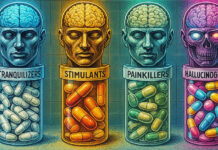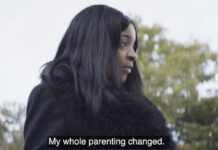The Mentally Ill Do Not Exist: Challenging Popular Media’s Obsession
How many times have you watched a news story or read a headline where a journalist or expert commentator making a statement or writing about an issue related to mental health uses the term “the mentally ill?” What image or thoughts does that bring to mind? For me, it evokes feelings of disgust and frustration over the ignorance associated with using this term as a blanketed reference to all persons who have been diagnosed or labeled with a mental health condition. Many who do not support the medical model of treatment for mental health problems believe mental illness does not exist all together.
Beyond Survival
Recently I came across a remarkable article, "From surviving to thriving: how does that happen." The authors have demonstrated that when people are weighed down by life's adversities, what they need is authentic, validating support, not facile pathologizing checklists, and not tranquilizing or stimulant drugs.
And You Thought They Were Side Effects: How Psychiatry Turned Chemical Disruption Into Medical...
There’s no cure beneath the disruption, just a chemical hit that alters perception or behavior.
How the “Brain Defect” Theory of Depression Stigmatizes Depression Sufferers
Viewing depression as a “brain defect” rather than a “character defect” is supposed to reduce the stigma of depression, according to the American Psychiatric...
“The Lion King” Psychiatrized: What If Psychiatry Had Gotten Its Hands on Simba?
It is time for a new strategy. Rather than try to get adults to question their entrenched beliefs, why not reach out directly to not-yet-fully-indoctrinated kids? This could be done by creating psychiatrized versions of their favorite films that show how ridiculous and harmful the medical model is. Scene 1: Annoyed by Simba's exuberance, Mufasa takes him to Rafiki, the monkey psychiatrist.
Informed Consent Must Reflect Information from Online Withdrawal Forums
Online withdrawal forums document an assortment of risks associated with discontinuation of psychiatric drugs. Such information is readily available and must be disclosed during informed consent.
What is a Warm Line and What Should I Expect When I Call One?
A warm line is an alternative to a crisis line that is run by “peers,” generally those who have had their own experiences of trauma that they are willing to speak of and acknowledge. Unlike a crisis line, a warm line operator is unlikely to call the police or have someone locked up if they talk about suicidal or self-harming thoughts or behaviors. Most warm line operators have been through extreme challenges themselves and are there primarily to listen.
eCPR: A Health Promotion Approach
eCPR is a public health education program designed to teach people to assist others through emotional crisis through three steps: C = connecting, P = emPowering, and R = revitalizing. eCPR recognizes that the experiences of trauma, emotional crisis, and emotional distress are universal; they can happen to anyone, at anytime, anywhere.
Five Types of Mental Health Advocates
I've figured out there are five types of mental health advocates. We need to respect all five types of motivations and viewpoints in order to support or combat their agendas. The question for us, is how can we each of us maximize our own impact to share awareness of this situation and then impact change? The answer is that each of us has to work from our own passions and interests and talents and skills and motivations.
Screen Time for Children Under Three: A Trigger for Virtual Autism?
"A Stone Unturned" weaves together the research and stories of autism symptoms reversed by removing screens and adding more parent engagement.
Letter to my Classmates on our 40th Reunion
It is hard for me to feel celebratory on the occasion of our 40th reunion. As my career winds down, I feel more disappointment and dismay than the glow of lifelong achievement.
The Grief Pill is Coming!
If you yearn or pine too long for your dead child, partner, spouse, or friend, you may be addicted to grief, according to the new revision of the DSM.
Insane Medicine: Epilogue
I wanted to interrogate the assumptions that pervade theory, research, and practice in mental health. You can see the emptiness of the empirical and philosophical paradigms in circulation.
Dialogical Recovery of our Minds
I think that our mind and our capacity to use it to think clearly depends on our inner and outer dialogue. When we become...
5 Things You Can Do In 5 Minutes to UnDiagnose Emotional Distress
A lot of posts on this site are about the problems in mental health care. This post is about some solutions. Many of us can do small, simple things to move advocacy forward. We can all make a difference so people can learn how to handle emotional distress without using disease based approaches with chemically based "solutions." Here are 5 things you can do in the next five minutes to promote UnDiagnosing Emotional Distress.
Loss, Grief, and Betrayal: Psychiatric Survivors Reflect on the Impact of New Serotonin Study
Loss, grief, and betrayal are felt deeply by many who have been affected by the myth of the chemical imbalance, especially now that it has been debunked.
Introducing Myself
I’m an Associate Professor at the Georgia State University in the School of Social Work. Early in my career in the late 1960s and...
Committed: The Battle Over Involuntary Psychiatric Care
Dinah Miller and Annette Hanson are psychiatrists who blog at Shrink Rap. On one topic we agree — the subject of involuntary care is the most contentious and troubling topic for psychiatry. To their credit, they have directed an enormous amount of attention to this subject in their latest book.
Upon the U.K. Launch of Psychiatry and the Business of Madness: A Reflection
This is a study of psychiatry. It is a study of an area officially a branch of medicine and overwhelmingly seen as legitimate, benign, progressive, and effective. But what if society had it wrong? What if this were not legitimate medicine? Dare we imagine a world where helping is not professionalized, where caring is not commodified. Where, in the spirit of community, we go about the business of life together?
The Continuing Education Course on Withdrawal from Psychiatric Drugs is Here!
A full picture of the seven webinars that comprise our upcoming psychiatric withdrawal course, with presenters including Sandra Steingard, Peter Breggin, Kelly Brogan, Carina Hakansson, Will Hall and a panel of survivors. The course begins on October 24th and slots are filling fast!
When Will We Wake? Reflections on Suicide and Psychotropic Medications
What are we doing to our people? What life have we created for our youth? I want to believe that those struggling individuals for whom life became unbearable under the influence of medication cocktails have not died in vain. I have chosen to see their action as both a sacrifice and statement to all of us.
Justina Pelletier: The Case Continues
On March 25, Joseph Johnston, Juvenile Court Justice in Boston, Massachusetts, issued a disposition order in the case: Care and protection of Justina Pelletier. The background to the case is well-known. Justina is 15 years old. Judge Johnston did not return Justina to the care of her parents, but instead granted permanent custody to the Massachusetts Department of Children and Families (DCF), with a right to review in June. The disposition order is somewhat terse and sparing in its tone, but reading between the lines, it seems clear that the court has determined that Justina either does not have mitochondrial disease or that, even if she does have mitochondrial disease, her concern about this matter is inappropriate and excessive.
What Does it Mean to Be Borderpolar?
Psychiatrists believe people can have both bipolar disorder and borderline personality disorder, referred to as “borderpolar,” although this is not an official DSM diagnosis.
Dr. Pies and The Chemical Imbalance Deception
Dr. Pies claims that the "chemical imbalance" theory was never really professed by psychiatrists. Yet he himself wrote an essay in "Creative Nonfiction" in 1999 that purveyed it directly to the layperson.
Free Blog Ideas
Right now I am working on the Connect Power site build to make an underground railroad to help people out of the mental health...























